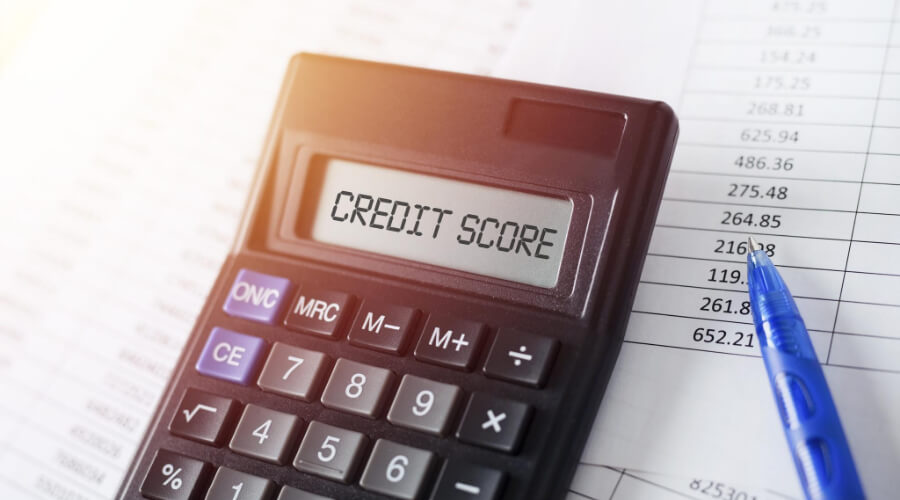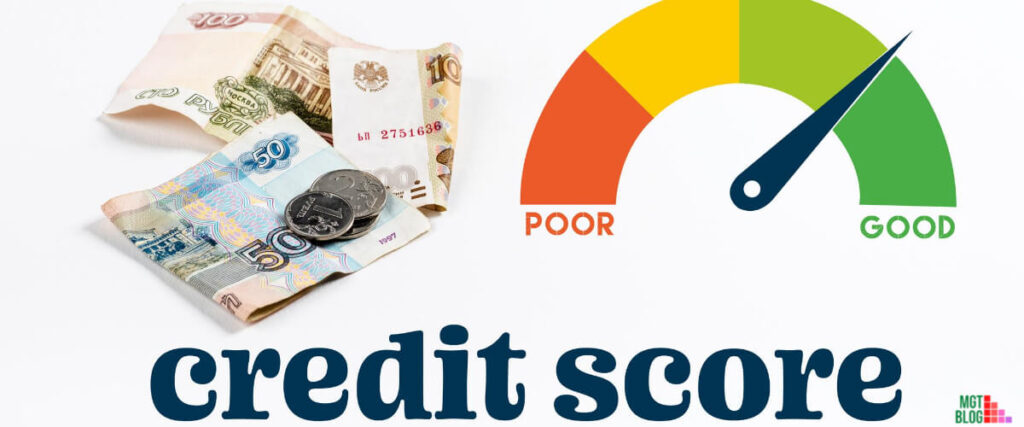The 11 magical words that will promptly improve your credit score are “credit reports”, “derogatory”, “late payments”, “accurate information”, “credit utilization”, “hard inquiries”, “credit limits”, “new credit card”, “credit balance”, “old accounts”, and “pay bills.”
Key Takeaways
- A credit score is a very important personal finance factor because it represents a consumer’s creditworthiness
- A credit score is a number between 300–850, and the higher your number is the better
- If you have a low credit score then you will find it very difficult to borrow money from banks, credit unions, etc.
- Applying for a loan with a lower credit score can result in a higher interest rate
- You can get a free copy of your credit report once a year from the credit bureaus
How These 11 Words Will Change Credit Score

A good credit score is like a gold mine. You can easily qualify for lower interest rates and better terms for any kind of financing. Therefore, it is very important to improve the credit score but you won’t be able to increase the score overnights. So, you should start repairing your credit score and the 11 words will help you to a great extent.
1. Check Out Your “Credit Reports”
Usually, the credit bureaus give you a free copy of your credit report once a year. So, when you get your report you should check your report for any wrong information. You can also check your credit report any time you want by using a service like Credit Karma. Here you have to register an account and when you signed up you will be able to see your credit reports from various bureaus like TransUnion, Equifax, etc. When you check your report you will understand what factors are working in your favor and what needs to be improved. Factors that contribute to a higher credit score are –

1. Payment history
2. Amounts owed
3. Credit history length
4. Credit mix
5. New Credit, etc.
Moreover, you should check all the information on your report is correct. If there is any wrong information then you should alter it to improve your score.
2. Dispute “Derogatory” Marks
If you see incorrect information on your credit report like all accounts information and negative marks in the report. If you see any errors then you can dispute errors. You can write a letter to the credit bureaus if you wanted to dispute errors or you can do it online using various 3rd party services. You should check the important factors first because they weigh more heavily on your credit score than others. You should check the collection accounts also because it is very common to have at least one collection account appear on your report. Fixing the errors with the dispute is very easy therefore don’t think it’s a hassle to correct the errors of credit reports. You can dispute errors through each credit bureau which is very convenient. But, you should keep in mind that some disputes will take longer than others. So keep patience and wait for the result.
3. Dispute “Late Payments”
You might clear all your payments in time but sometimes mistakes might happen by the mortgage lenders because they may report that a payment was late. Or, a credit card provider might fail to enter a payment correctly. These are very common mistakes and if these happened to you then you can dispute late payments. We all know the negative impact of late payments on credit scores so if you are a victim of these mistakes then you should immediately dispute late payments. This process is quite similar to dispute derogatory marks so it won’t be a hassle to dispute late payments.
4. Dispute “Accurate Information”
It is very common to dispute wrong information in a credit report but do you know, you can also dispute accurate information to improve your credit score. For example, if there is an entry on your credit report regarding a collection from a collection agency then you can dispute that entry. Many people dispute this type of entry and sometimes those entries will get removed. This is a cunning method because when you dispute an entry the credit bureau asks the creditor to verify the information. Sometimes, the creditors verify the entry and sometimes they don’t. If the creditor ignores the request then the credit agency will remove the entry from your credit report. It will have a positive impact on your credit report and your credit score will increase.
5. Aim for 30% “Credit Utilization”
Credit utilization is a very important term for a credit report because it refers to the portion of your credit limit that you are using currently or at any given time. It’s the second most important factor in FICO credit score after payment history. You should try to keep your credit utilization 30% or less. You can easily keep your credit utilization in check if you can pay the credit card bills in full each month. If it’s not possible to pay the full credit balance then you should keep your total outstanding balance at 30% or less of your total credit limit. Then you can try to keep that below 10%. If you can keep the credit utilization 10% or below; then it will play a vital role in improving your credit score.
6. Limit “Hard Inquiries”
There are two types of inquiries for credit and they are “hard” and “soft.” Usually, a soft inquiry includes checking your own credit, giving a potential employer permission to check your credit, checking from credit card companies, etc. Soft inquiries don’t have an adverse impact on credit scores. However, hard inquiries can affect your credit score and the effects might remain for anywhere from a few months to two years. Usually, the hard inquiry includes a new credit card application, a mortgage, an auto loan, or some other form of new credit. So, you should try to limit your requests for new credit cards as well as hard inquiries. If you are trying to improve your credit score then it will help you a lot.
7. Increase your “Credit Limits”
We already know the importance of low credit utilization. So you can easily lower credit utilization by increasing the credit limit. If you carry a balance of more than 50 percent of your available credit then it will negatively affect your credit score. You can either down your balance or increase your credit limit. If you are running tight on your budget then increasing your credit limit is the best way to keep your credit utilization lower. If you have a decent payment history then it won’t be a problem to increase the credit limit. The credit card companies will be more than happy to increase your credit limit because they want you to carry a high balance; this is how they make money!
8. Get a “New Credit Card”
This is also very effective for you to change the credit score because when you get a new credit card it will lower your credit utilization ratio. If you can able to carry zero balance on the new card then it will immediately increase your available credit limit. If your purpose of getting a new card is to increase the credit limit then try to get a card that doesn’t charge an annual fee or the annual fee is low compared to other cards. This method will only work if your goal is to improve your credit score. However, if you use up the credit of the new card then this trick won’t work.
9. Pay Down Your “Credit Balances”
The purpose of a high credit score is to borrow money and we only borrow money when we don’t have any money or we want more. So, this trick might be worthless for you if you don’t have sufficient money to pay down your credit balance. However, if your purpose is to get a big loan and require increasing your credit score a little then this is a great idea for you. If you will able to pay your credit balance and decrease your percentage of available credit used then it will quickly improve your credit score. So, investing a small amount of money will help you get a big loan!
10. Keep “Old Accounts” Open
Old credit accounts play a positive role in credit score; in fact, how long you’ve held credit accounts makes up 15% of your FICO® Score. Usually, it includes the age of your oldest account, the new account, and the average age of all your accounts. The general rule is, the longer your credit history, the higher your credit scores. So, if you require to get rid of a credit account then try to close the newest credit account.
11. Pay Bills On Time
Late payments can badly hurt your credit score even a single late payment. So, you should be more careful about your bills and when is their due time. Make sure you pay all your bills in time and if you won’t be able to pay all your bills in a month then make smart decisions. For example, your mortgage lender or credit card provider will definitely report a late payment to the credit bureaus, so make sure you pay their bills on time. On the other hand, utilities and cell providers usually don’t report a late payment to the credit bureaus. Moreover, you can check your credit report to see which accounts are listed so that you can choose an account for late payment that does not appear on your report.
Final Thoughts

If you want to improve your credit score then you should set some goals and limit the use of your available credits. The above 11 words will help you apply for a big loan and make your dreams come true by increasing your credit score. Finally, following these 11 words won’t change or improve your credit score overnight but you will see positive results in the coming months.
References:
1. https://principlesofincrease.com/magic-words-that-totally-erase-debt/
2. https://www.cnbc.com/2020/02/24/how-to-improve-your-credit-score-right-away.html
Last Updated on November 6, 2022 by Magalie D.

Magalie D. is a Diploma holder in Public Administration & Management from McGill University of Canada. She shares management tips here in MGTBlog when she has nothing to do and gets some free time after working in a multinational company at Toronto.





